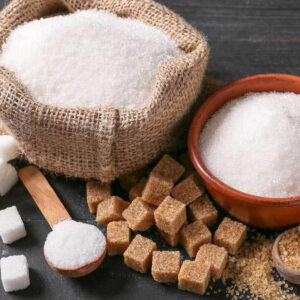Many people compare beet sugar vs cane sugar to understand their distinctions in sweetness and texture.
Many people compare beet sugar vs cane sugar to understand their distinctions in sweetness and texture.
Blog Article
Discover the Uses and Perks of Beet Sugar Vs Cane Sugar in Your Daily Diet
Checking out the distinctive top qualities of beet and cane sugar discloses greater than just their sweetening capabilities; it highlights their distinct influence on health and wellness and cooking arts. Beet sugar, known for its refined flavor, is usually preferred in fragile desserts, whereas cane sugar, with its hint of molasses, includes richness to robust meals. Each kind holds its very own nutritional account and glycemic effects, inviting a much deeper understanding of their functions in a well balanced diet and sustainable usage practices.
Origin and Manufacturing Procedures of Beet and Cane Sugar

The distinct climates and soil types required for expanding sugar beetroots and sugarcane add to differences in their growing practices and geographical circulation, influencing the business economics and sustainability of their manufacturing. beet sugar vs cane sugar.
Nutritional Contrast Between Beet Sugar and Cane Sugar
In spite of stemming from various plants, beet sugar and cane sugar are nutritionally really similar, both largely containing sucrose. Each offers regarding 4 calories per gram, translating to approximately 16 calories per teaspoon. Structurally, both sugars are made up of around 99.95% sucrose, with very little quantities of various other substances like moisture and trace minerals, which do not dramatically alter their nutritional accounts.

Ultimately, when choosing between beet sugar and cane sugar based upon nutritional material alone, both deal identical advantages and downsides as they are essentially types of the exact same molecule-- sucrose, giving fast power without other nutrients.
Influence On Wellness: Glycemic Index and Caloric Content
Checking out even more right into the effects of beet sugar and cane sugar on health and wellness, it is essential to consider their glycemic index and calorie material. Both sugars are categorized as sucrose, which is composed of glucose and Website fructose. This composition leads them to have a comparable effect on blood sugar levels. The glycemic index (GI) of both beet and cane sugar is around 65, categorizing them as high-GI foods, which can trigger quick spikes in blood sugar degrees. This is an essential aspect for individuals handling diabetes or those trying to maintain their power levels throughout the day.
Each kind of sugar has about 4 calories per gram, making their calorie content matching. For those keeping track of calorie consumption, especially when handling weight or metabolic wellness problems, comprehending this equivalence is essential (beet sugar vs cane sugar). However, too much usage of any high-calorie, high-GI food can contribute to health problems such as weight problems, cardiovascular disease, and insulin resistance.
Environmental and Economic Factors To Consider of Sugar Production
Beyond health and wellness influences, Discover More Here the manufacturing of beet and cane sugar also elevates significant environmental and financial problems. Sugar beet growing has a tendency to call for cooler environments and has a lower geographical impact contrasted to sugar cane, which grows in tropical areas.
In addition, using pesticides and fertilizers in both beet and cane sugar cultivation can lead to soil degradation and air pollution, more influencing biodiversity and local water bodies (beet sugar vs cane sugar). The selection in between growing sugar beet or cane typically hinges on neighborhood environmental problems and financial variables, making the sustainability of sugar production a complicated problem
Culinary Applications and Taste Differences
While the ecological and economic aspects of sugar production are indeed substantial, the option in between beet and cane sugar additionally influences culinary applications and flavor accounts. Beet sugar, acquired from the sugar beet plant, is understood for its remarkably neutral taste. This makes it a flexible ingredient in cooking, where it does not change the taste of various other parts. It dissolves rapidly and is optimal for use in cakes, cookies, and pastries.
Walking cane sugar, removed from sugarcane, typically keeps molasses traces, which present a distinctive splendor and depth. This slight molasses taste improves the complexity of baked products, sauces, and marinates. It is especially preferred in things where a sugar undertone is desired, such as in brownies or gingerbread. Additionally, the mild variant in dampness material between beet and cane go to the website sugar can affect the appearance and consistency of dishes, making cane sugar a favored choice for details recipes that benefit from its distinct properties.

Verdict
In verdict, both beet and cane sugar have distinctive origins and production processes, supplying similar nutritional profiles with slight distinctions in salt web content and flavor. While their influence on wellness, specifically pertaining to glycemic index and calories, is equivalent, the selection between them commonly comes down to environmental, financial factors, and certain cooking demands. Understanding these facets can lead consumers in making notified choices that align with their health and wellness objectives and taste choices.
Report this page